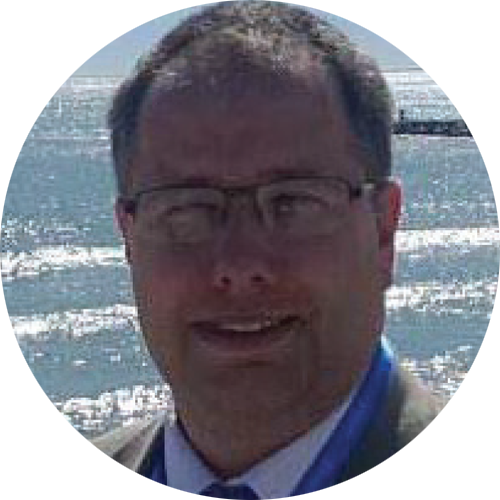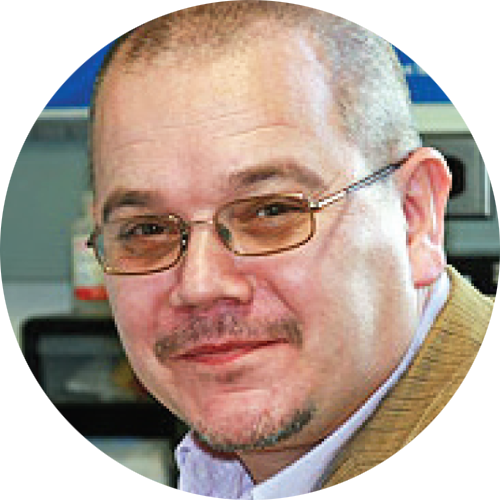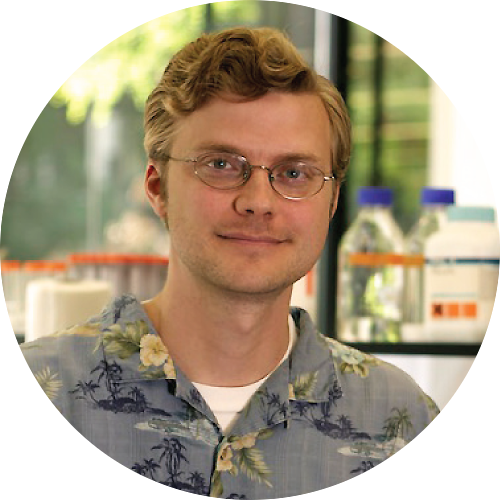Direct sample analysis of liquids, solids and powders without chromatography is as easy as it sounds, and provides mass spectral information within seconds. The video demonstrates analysis of a reaction mixture.
Analysis of Two Reaction Products by Direct Analysis Probe on a Compact Mass Spectrometer
The expression® CMS provides essential compound information quickly and improves the chemist’s workflow. The Atmospheric Solids Analysis Probe (ASAP®) permits fast analysis of solid and liquid samples and is a simple, low cost alternative to LC/MS methods. This direct analysis probe method has been shown to be useful for the analysis of volatile and semivolatile compounds. ASAP® is available as a combined ASAP-APCI source, or existing APCI sources can be easily modified to become dual APCI-ASAP capable.
Register to download the full application note.
Reaction Monitoring by Direct Analysis Probe on a Compact Mass Spectrometer
The expression CMS provides essential compound information quickly and improves the chemist’s workflow. The Atmospheric Solids Analysis Probe (ASAP®) permits fast analysis of solid and liquid samples and is a simple, faster and lower cost alternative to LC/MS methods. This direct analysis probe method has been shown to be useful for the analysis of volatile and semivolatile compounds. ASAP is available as a combined ASAP-APCI source, or existing APCI sources can be easily modified to become dual APCI-ASAP capable.
Register to download the full application note which includes the results of an example analysis.
Reach Separations, United Kingdom
Q: What is the focus of your lab’s research?
A: Reach Separations is a contract research organization that services chemical, agricultural, pharmaceutical and academic clients.
Capability developed around expertise in separation science, specifically purification/prep.
Q: What previous workflow challenges did you experience?
A: Needed a tool to confirm quality of material (in and out).
Q: Why did you incorporate the expression CMS into your laboratory?
A: We selected the expression CMS for several reasons; proper MS Detector at an attractive price as well as its compact size because our lab space is limited. Advion’s technical support and service is exceptional. Easy to integrate with our wide range of equipment. Vendor relationship that is two way, Advion listens to our needs and ideas.
Q: Who Would you Recommend to purchase the expression CMS?
A: Anyone who needs a reliable mass spectrometer upgrade/addition for existing equipment.
Helmholtz-Zentrum Dresden Rossendorf (HZDR), Germany
Q: WHat is tHe focuS of your lab’S reSearcH?
A: The group has comprehensive experiences for undertaking radiotracer experiments, different spectroscopic techniques, characterization of colloid-chemical properties and in vitro/in vivo studies in view of the development and characterization of novel radiotracers, including functionalized nanoparticles. The design and development of chemically, metabolically and radiolytically stable radiometal complexes on the basis of 64Cu/67Cu is of special interest. Furthermore, polynuclear metal compounds (polyoxometalates, Re clusters) for anti-tumor activity, photosensitizing, and radiation-sensitizing properties are under investigation. The characterization of binding and transport behavior of novel receptors by solvent extraction studies represents one main topic.
Q: WHAT PREVIOUS WORKFLOW CHALLENGES DID YOU EXPERIENCE?
A: The development of new bifunctional chelating agents and relevant target-seeking bio-conjugates requires novel synthetic strategies and the improvement of known pathways as well. For the successful achievement of this goal, ‘real-time’ characterization of main and side-products is of particular importance.
Q: WHY DID YOU INCORPORATE THE EXPRESSION CMS INTO YOUR LABORATORY?
A: The Advion expression compact mass spectrometer rapidly provides reliable mass data in a stand-alone modus and coupled to UPLC/HPLC systems, respectively. Sample handling and measurement are straightforward. PhD students appreciate both the ‘in-time’ information about success and failure in developing novel compounds. I recommend to all groups requiring immediate access to reliable mass data for the characterization of novel compounds.
Boston College, Center for Mass Spectrometry (CMS)
Q: What is the focus of your lab’s research?
A: The mass spectrometry facility here at Boston College’s main focus is as a core lab, open to all users, both undergraduate and graduate students alike.
Our main research interests include the application of mass spectrometry as a routine tool for chemistry/chemical biology; exploring new research applications for mass spectrometry; and the use of open-air ionization methods for the analysis of pharmaceutical, biological, drug and chemical analysis.
Q: What was your previous work flow or challenges?
A: As a core lab we have a large number of samples being run and there is a constant need to change ionization sources.
Q: Why did you incorporate the expression® CMS into your laboratory?
A: The expression® has allowed us to take the workload of the other more expensive instruments by incorporating it as an open access instrument. With minimal training, the students are able to run their own samples, as not to slow down their research.
Due to the instrument size and speed at which it pumps down, we are able to move the instrument directly to the classroom for students to use.
Institut Curie, France
Q: WHAT IS THE FOCUS OF YOUR LAB’S RESEARCH?
A: The central activity of our group is to design and develop molecules to study and control biological systems. We are using organic and organometallic synthesis to construct new bioactive compounds, new agents for bioconjugation, and new probes for biology. Our focus is to apply chemistry to biology by identifying targets and then creating cancer treatment strategies and therapy options.
Q: WHAT PREVIOUS WORKFLOW CHALLENGES DID YOU EXPERIENCE?
A: For identification and analysis, we use NMR and HPLC regularly, but had no mass spectrometer in the laboratory, so we gave our samples to outside MS service for analysis. Therefore, we had to wait for the results.
Q: WHY DID YOU INCORPORATE THE EXPRESSION CMS INTO YOUR LABORATORY?
A: Advion’s CMS allows us to have a self-service option. One ingenieur is in-charge of the CMS, but everyone can use it including students after a short formation. And for 80% of our work it is perfect. We still use the MS facility for more demanding analysis, but this new workflow speeds up our process significantly.
Q: WHO WOULD YOU RECOMMEND TO PURCHASE THE EXPRESSION CMS?
A: I would recommend the CMS to any small or large organization like ours who wants fast answers for day-to-day analysis.
Beijing Institute of Technology, China
Q: What is the focus of your labs research?
A: Our main research interest is to use mass spectrometry as a routine tool for synthetic intermediates.
Q: What previous workflow challenges did you experience?
A: As we have large numbers of products to run, our major workflow issue is to shorten product detection times.
Q: Why did you incorporate the expression® CMS into your lab?
A: As an open-access instrument, the expression® CMS allows us to incorporate with other instruments with a compact size. More important, it helps us to know the molecular weight information of products timely.
Electrospray LC/MS response differences from equimolar quantities of drugs using a compact mass spectrometer equipped with atmospheric pressure ionization
The purpose of this study was to evaluate the positive and negative electrospray (ESI) and atmospheric pressure chemical ionization (APCI) LC/MS ion current response from a representative synthetic mixture of standard pharmaceutical compounds. The selected drup compounds were prepared as an equimolar mixture and analyzed by an optimized gradient LC/MS procedure using a novel compact mass spectrometer. The total and extracted ion current chromatographic peaks were compared between ESI and APCI in both positive and negative ionization modes. The results from this study shed some light on the relative merits of APCI vs ESI as well as the importance of the optimal ionization polarity for the LC/MS determination of the selected acidic and basic small molecule drugs. We also note some differences in adduct formation between these two API techniques.
University of Zurich, Department of Chemistry
Q: What is the focus of your lab’s research?
A: To address unresolved questions in DNA chemical biology, our group develops molecular probes for characterizing the structure, function, and dynamics of nucleic acids in vivo. Daily work in our lab relies heavily upon the rational design and synthesis of new organic compounds and their metal-containing complexes.
Q: What previous workflow challenges did you experience?
A: One major challenge to our workflow is the rapid identification of new target molecules that are often prepared as complex mixtures.
Q: Why did you incorporate the expression CMS into your laboratory?
A: We chose the expression CMS as a rapid and sensitive screening tool to identify new target molecules from the chromatographic separation of crude reaction mixtures. Given the exceptionally high sensitivity of this system, desired compounds that are initially made in trace quantities can be easily identified.






